
The Free Press

If Iran ever builds a nuclear bomb, then we’ll be living in a drastically more dangerous world. For more than two decades, avoiding that reality has motivated American foreign policy, with decidedly mixed results. Now, recent activities at a secretive office inside Tehran’s Ministry of Defense is stoking fears that we’re far closer to that day than many experts understand.
Two separate documents—about a half dozen pages written in Farsi—obtained by The Free Press reveal how Iran’s parliament, or Majlis, is significantly expanding the funding and military pursuits of the Organization of Defensive Innovation and Research, known by its Farsi language–based acronym, SPND. The pages of legislation, passed this summer, were downloaded from the parliament’s website, but are being detailed for the first time in the Western press.
While the new Iranian legislation doesn’t specifically mention nuclear bomb development, it clearly states that SPND’s mandate is to produce advanced and nonconventional weapons with no civilian oversight. The legislation, which The Free Press translated, states that “this organization focuses on managing and acquiring innovative, emerging, groundbreaking, high-risk, and superior technologies in response to new and emerging threats.”
The law essentially shields Iran’s defense department from any domestic oversight—while giving it a seemingly unlimited budget, though no specific numbers were given. When Iran’s parliament published the legislation on its website in May, it offered the most detailed accounting yet of SPND’s structure, which was largely kept secret.
The Iranian law decrees that SPND reports directly to Iran’s Supreme Leader Ayatollah Ali Khamenei, who is also the chief commander of Iran’s armed forces. It says the organization “has an independent legal [status] and operates as a government institution with financial, transactional, and administrative independence.”
Ali Akbar Salehi, a former foreign minister and ex-head of Iran’s Atomic Energy Organization, bluntly told Iranian state television in February that his country already has all the necessary components to build a bomb. “We have all the thresholds of nuclear science and technology,” Salehi said in response to a question about Iran’s nuclear capabilities. “I’ll give you an example: What does a car want? It wants a chassis, an engine, a steering wheel, and a gearbox. You tell me, did you make the gearbox? I say yes. Did you make the engine? Yes, but each one is for its own purpose.”
For more than a decade, American, Israeli, and United Nations officials have closely tracked SPND’s operations due to their collective belief that it has played the leading role in covert nuclear weapons research for the Islamic Republic.
Starting in 2014, the U.S. has sanctioned a spiderweb of SPND officials, subsidiaries, and front companies in a bid to drain the organization’s supply lines and resources. Israel was so alarmed by SPND’s activities that its agents assassinated the organization’s former chief, Mohsen Fakhrizadeh, on the outskirts of Tehran in November 2020. Assassins, also believed to be backed by Israel, killed five other Iranian scientists between 2007 and 2012, and attempted to take out a sixth.
Now, in an apparent jab at Israel, this new Iranian law described in the documents reviewed by The Free Press honors SPND’s fallen founder, stating that the organization’s work will “continue and consolidate the path of the scientist, Martyr Mohsen Fakhrizadeh, and achieve the advanced technologies needed for current and future defense and security.”
David Albright, a former UN arms inspector who has closely tracked SPND’s activities for more than a decade, believes the documents show Tehran’s brazenness and desire to make known its growing capabilities. “SPND seeks to develop all kinds of weapons systems and do all kinds of military-related research, and they want to worry their adversaries while ensuring an open spigot of money from the Iranian regime,” Albright, who heads the Institute for Science and International Security, told The Free Press. “This would come largely free of governmental or parliamentary oversight.”
The expansion of SPND outlined in these documents coincides with a shift in the U.S. intelligence community’s view of Iran’s nuclear program. A July report released by the top U.S. intelligence body, the Office of the Director of National Intelligence (ODNI), details how it can no longer verify that Iran’s nuclear pursuits are strictly for civilian purposes. U.S. and Israeli intelligence officials have also detected Iran engaging in computer modeling and metallurgy experiments—possibly through SPND—that could be used in nuclear bomb development, according to people briefed on the classified information.
Some worry Iran could use the Middle East’s instability, and the war in Gaza, as a pretext to further expand its nuclear capabilities—if not make a dash for a bomb.
“One decision [by Tehran] could get them very close to having that nuclear weapon—in which case, so many response options are taken off the table for the United States, for Israel, and for the world,” said Dana Stroul, who served as the Pentagon’s point person on Mideast policy from 2021–2023, at a roundtable in August. She said the ease with which Israel, the U.S., and its allies intercepted a wave of Iranian missiles and drones launched at the Jewish state this past April could steer Iran’s leaders to seek even greater military capabilities.
SPND, according to U.S. and Israeli officials, is the successor to a covert Iranian nuclear weapons program, called the AMAD Plan, which Iran disbanded in 2003 after it was detected by Western intelligence agencies. U.S. and UN officials have told me that Iranian officials repeatedly denied SPND’s existence as well as the involvement of its late director, Fakhrizadeh. Multiple past efforts to interview Fakhrizadeh and other SPND officials by weapons inspectors from the UN’s nuclear watchdog, the International Atomic Energy Agency, were denied, according to current and former agency officials.
Iran’s government officially claims that its nuclear program is for peaceful pursuits and cites a religious fatwa, or decree, publicly issued in 2003 by Ayatollah Khamenei banning the development of atomic weapons. But in recent months a number of current and former Iranian officials, including Ali Akbar Salehi, have publicly questioned the utility of this military doctrine, pointing in part to the threats posed by the U.S. and Israel, both of which have nuclear weapons (though Israel has never acknowledged its arsenal). This debate about the right to develop nuclear weapons is also taking place inside Iran’s elite military unit, the Islamic Revolutionary Guard Corps, according to people who have talked to senior IRGC officials in recent months.
Over the past two years, Iran has significantly expanded its stockpile of highly enriched uranium to the point it could be used to assemble a half-dozen bombs if this fissile material is refined further, according to Albright and other nuclear weapons experts. Senior U.S. officials now say that Tehran could produce weapons-grade fuel in just a few weeks. Iran has also moved ahead with developing a potential delivery system for an atomic weapon: test-firing the long-range Simorgh carrier rocket in January.
The U.S. intelligence community’s official position, going back to 2007, had been that Iran “isn’t currently undertaking the key nuclear weapons development activities necessary to produce a testable nuclear device.” But in July, the ODNI significantly shifted this language to state that Tehran has “undertaken activities that better position it to produce a nuclear device, if it chooses to do so.”
SPND’s operations are seen as central to any final Iranian decision to actually cross the weapons threshold. Its scientists, some of whom are tied to the original AMAD Plan, have been involved in developing triggering devices for a nuclear detonation, according to U.S., Israeli, and UN officials. But there remains uncertainty about just how far Fakhrizade’s men have gotten.
In 2018, spies from Israel’s intelligence service, Mossad, exfiltrated a half-ton of documents from a dilapidated warehouse in south Tehran, which Israeli officials say tell the broader tale of Iran’s nuclear weapons activities. Known as the Atomic Archive, they identify dozens of undeclared sites where covert nuclear work allegedly took place. Some of these sites are also believed to house undeclared nuclear materials and equipment. Inspectors from the UN have repeatedly tried to gain access to these sites, but have largely failed.
A wild card in the Iran story, though, is the country’s newly elected president, Masoud Pezeshkian. The 69-year-old cardiac surgeon took office in July following the death of his hard-line predecessor, Ebrahim Raisi, in a helicopter crash. Pezeshkian, a self-proclaimed reformist, has spoken about his desire to renew negotiations with the U.S. and other governments to constrain Iran’s nuclear capabilities in exchange for a loosening of Western sanctions. He has placed on his staff a number of the diplomats who negotiated the landmark 2015 nuclear deal with the Obama administration, from which President Trump withdrew the U.S. three years later.
President Biden has sought—unsuccessfully—to revive the deal during his tenure, using European officials as intermediaries. The diplomatic process has been complicated, though, by the suspension last year of the White House’s point man on Iran, Robert Malley, whom the FBI is now investigating for allegedly mishandling classified information.
Vice President Kamala Harris hasn’t yet spoken on the campaign trail about her position on the Iranian nuclear program. But her national security adviser, Phil Gordon, helped negotiate the original pact and has been among the most prominent Democrats calling for diplomacy with Tehran. His ties to individuals close to Tehran have already stoked criticism from the right, as The Free Press reported in August.
U.S. and Israeli officials are deeply skeptical that Pezeshkian has the political heft to wrestle control of SPND and Iran’s broader nuclear program from the Islamic Revolutionary Guard Corps and Ayatollah Khamenei. But there’s still a belief, even in Israel, that the U.S. and Iran will return to the negotiating table, particularly in a Harris administration—even at the risk of Tehran using diplomacy as a cover to continue its nuclear pursuits.
The sense that Iran was secretly seeking the bomb has, at times, seemed like a Western myth or outright paranoia. But the simple passage of this new Iranian law could mark the end of this story of intrigue.
Jay Solomon is an investigative reporter for The Free Press and author of The Iran Wars. He most recently worked at Semafor, where he was global security editor; before that, he was chief foreign affairs correspondent for The Wall Street Journal. Follow him on X at @jaysolomon.
To support more of our work, become a Free Press subscriber today:


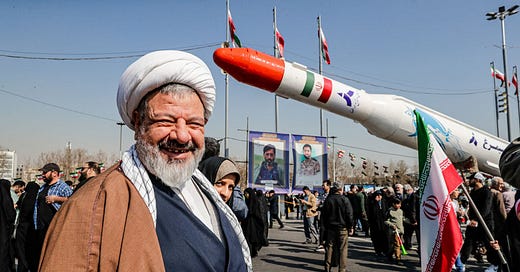



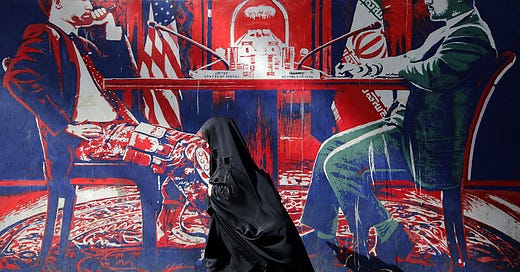
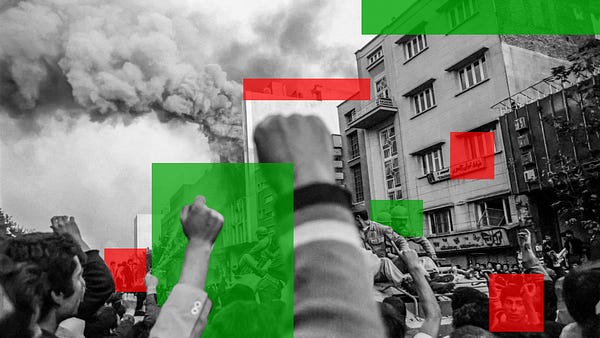

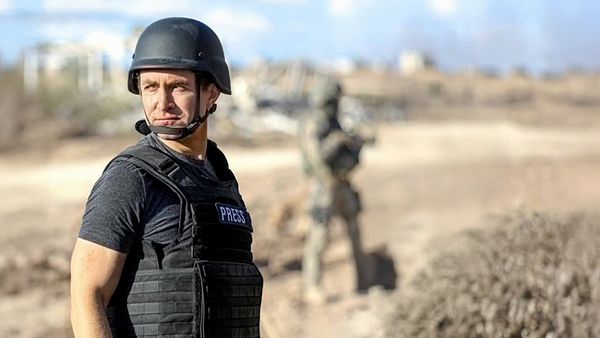

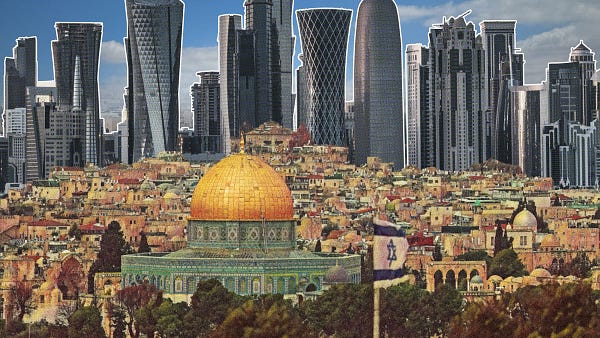

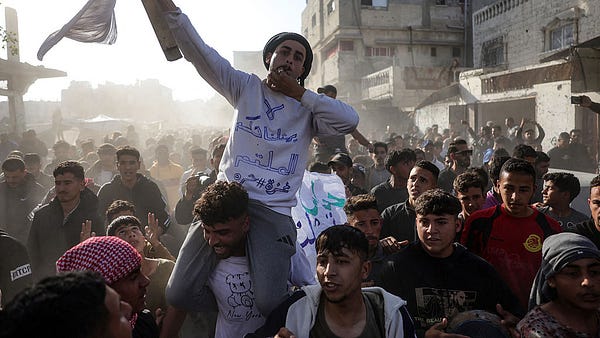

I am 69 years old. The fact is the world is closer to nuclear conflagration than it has ever been in my lifetime. Far closer to nuclear conflagration in fact . For that we have Joe Biden , Kamala Harris and I will add Mike Johnson (because he agreed to billions of dollars for war in Ukraine) and the Uniparty to that list . Fact is when Donald Trump ended his presidency to world was pretty much at peace. There was no war in Ukraine and the Abraham Accords (which Joe Biden would not even mention for political reasons) was yes bringing peace closer to the Middle East.
This new law does not mark the end to this "story of intrigue." Nor does translating a publicly available document that tracks with everything we already know. So while I disagree with the framing of this reporting as some sort of new exclusive, I do appreciate the light you bring to the topic, to include how destabilizing it will be for the world should Iran move forward with a nuclear weapon.